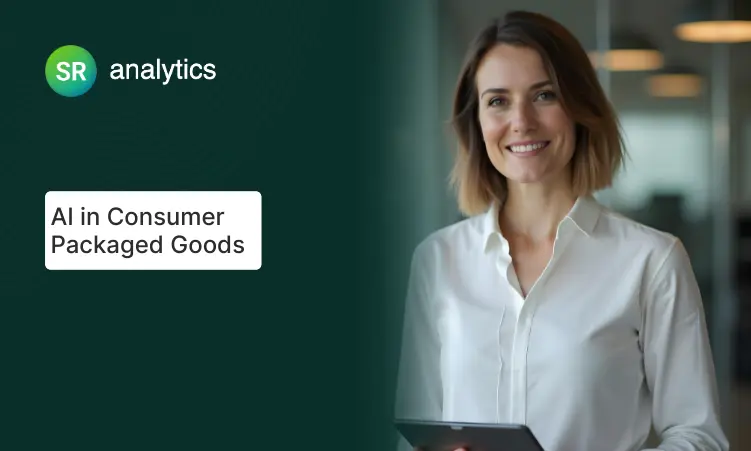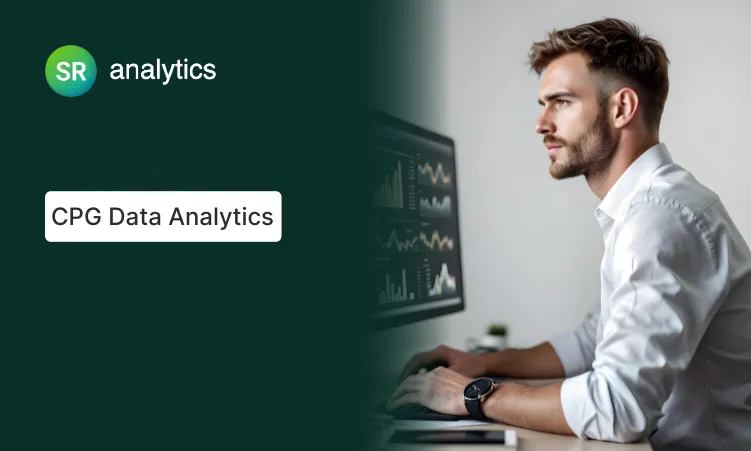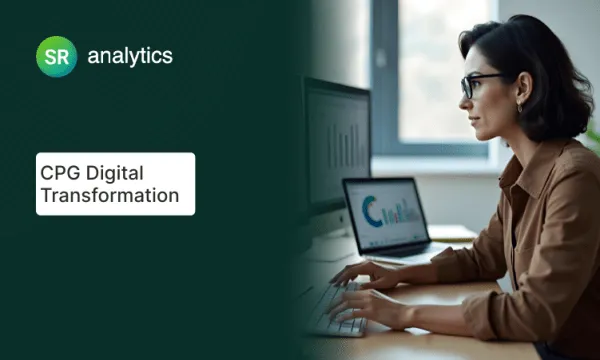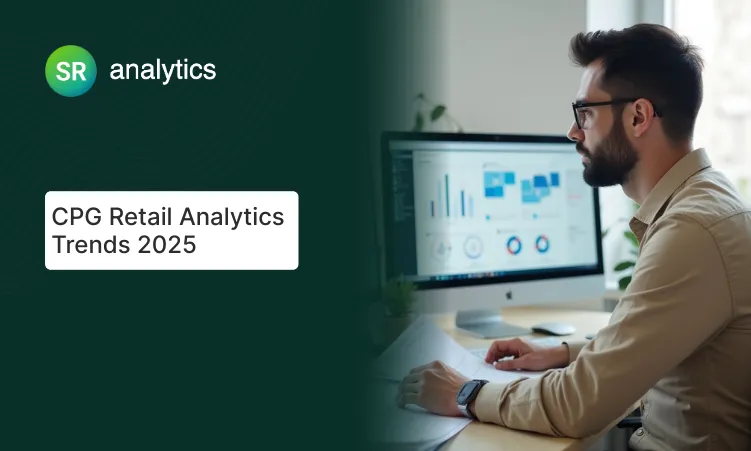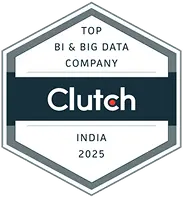Key Highlights
- 71% of CPG leaders adopted AI in 2024, up from 42% in 2023, with major companies reporting significant ROI within 90 days
- Unilever increased ice cream sales by 30% in key markets using weather-based AI demand forecasting systems
- 69% revenue growth and 72% cost reduction achieved by companies properly implementing AI across operations
- 90-day implementation timeline proves fastest path to demonstrable AI value in CPG industry
- Four main AI applications dominate CPG success: demand forecasting, trade promotion, supply chain, and consumer insights
- Temperature-sensitive categories like beverages and ice cream show highest AI implementation success rates at 85%
How industry leaders like Unilever are using artificial intelligence to boost sales by 30% and transform operations
When Unilever connected weather data to their ice cream demand forecasting, something remarkable happened. Not only did they improve prediction accuracy by 10%, but they also increased sales by up to 30% in key markets within just one year. This transformation demonstrates how AI in consumer packaged goods is moving beyond pilot programs to deliver measurable business results that create sustainable competitive advantages.
What is AI in Consumer Packaged Goods?
AI in consumer packaged goods refers to artificial intelligence technologies that help CPG companies optimize operations, predict demand, and automate decision-making across the entire value chain.
Unlike traditional analytics that analyze historical data, AI in CPG systems predict future outcomes and automatically optimize business decisions using real-time data from sales, weather, social media, and consumer behavior patterns.
The fundamental difference lies in AI’s ability to process vast amounts of unstructured data simultaneously and make proactive recommendations. While traditional systems tell you what happened last quarter, AI in consumer packaged goods predicts what will happen next month and automatically adjusts inventory, pricing, and promotions accordingly.
According to McKinsey’s 2024 survey, 71% of CPG leaders adopted AI in at least one function (up from 42% in 2023), with companies reporting 69% revenue increases and 72% cost reductions through proper implementation.
4 Types of AI Applications in CPG
What are the 4 main types of AI in CPG?
The four main types of AI applications in consumer packaged goods are:
- Demand Forecasting AI – Predicts consumer demand using weather, events, and historical data
- Trade Promotion AI – Optimizes promotional timing, pricing, and targeting for maximum ROI
- Supply Chain AI – Automates inventory management and distribution optimization
- Consumer Insights AI – Analyzes customer behavior for personalized experiences
1. Demand Forecasting AI
Demand forecasting AI represents the most mature application in AI in consumer packaged goods, incorporating external variables like weather patterns, competitive promotions, and social media trends to predict demand at granular levels. Unilever’s ice cream division improved forecast accuracy by 10% in Sweden by analyzing weather patterns, enabling them to position inventory optimally before demand spikes occur.
Modern systems process data from dozens of sources simultaneously, creating predictions that account for seasonal variations, promotional effects, competitive activity, and external factors that human planners struggle to quantify accurately.
2. Trade Promotion AI
Trade promotion optimization uses AI to analyze complex relationships between promotional pricing, competitive activity, seasonality, and consumer response patterns. These systems distinguish between incremental volume—genuinely new sales generated by promotions—and volume that was simply shifted from other time periods. Research shows coordinated promotion and media campaigns deliver 15-25% higher incremental volume than independent execution.
3. Supply Chain AI
Supply chain AI creates end-to-end visibility across production, distribution, and retail execution. Unilever’s integrated system automatically coordinates production schedules, inventory allocation, route optimization, and promotional timing based on weather predictions. When their AI predicts a heat wave, it increases production, pre-positions inventory, and can trigger promotional campaigns to capitalize on increased demand.
4. Consumer Insights AI
Consumer insights AI analyzes unstructured data from social media, reviews, and purchase behavior to identify emerging trends and enable personalized experiences. These systems can detect flavor trends months before traditional market research, segment consumers into micro-segments, and generate personalized recommendations at scale.
AI Implementation Success Rates by Category
| CPG Category | Implementation Success Rate | Average ROI Timeline | Primary AI Application |
|---|---|---|---|
| Ice Cream/Beverages | 85% | 3-6 months | Weather-based demand forecasting |
| Snacks | 78% | 4-8 months | Trade promotion optimization |
| Personal Care | 72% | 6-12 months | Consumer insights & personalization |
| Household Products | 68% | 6-12 months | Supply chain optimization |
| Beauty Products | 75% | 4-10 months | Assortment planning & trend analysis |
Source: Compiled from McKinsey, Bain, and industry implementation data
Real Success Stories
Unilever: Weather-Powered Ice Cream Revolution
Unilever’s comprehensive AI in consumer packaged goods implementation demonstrates how integrated systems create compounding value. Their challenge: ice cream demand varies dramatically with weather—even 1°C temperature changes significantly impact sales across 60 countries and 35 production lines.
The Solution: AI system analyzing weather patterns two weeks in advance, automatically adjusting production schedules, optimizing inventory allocation, and triggering promotional campaigns when conditions favor increased demand.
Quantifiable Results:
- 10% improvement in forecast accuracy (Sweden)
- Up to 30% sales increase in certain markets
- 10% reduction in waste of premium ingredients (vanilla, cocoa)
- 100,000+ AI-enabled freezers providing real-time inventory data
- Automated production optimization reducing manual planning time by 45%
Nestlé: Enterprise-Wide AI Transformation
Nestlé’s approach focuses on employee productivity and operational efficiency through their NesGPT platform. Their comprehensive implementation spans R&D, marketing, customer service, and supply chain operations.
Business Impact:
- 45 minutes saved per employee weekly through task automation
- 30% reduction in demand forecasting errors
- 30-50% decrease in equipment stoppages via predictive maintenance
- Product development acceleration from 6 months to 6 weeks
Key Takeaway
Successful implementations start with intuitive use cases (weather affects ice cream) and build integrated systems rather than trying to apply AI everywhere simultaneously.
90-Day Implementation Timeline
How long does CPG AI implementation take?
Most successful CPG AI implementations follow a 90-day timeline that delivers measurable results quickly:
Weeks 1-2: Foundation Setting
- Select two complementary use cases (demand forecasting + trade promotion)
- Assemble 18+ months historical data
- Define specific success metrics
- Establish governance processes
Weeks 3-6: Build & Test
- Develop AI models using actual company data
- Integrate external data sources (weather, competitive intelligence)
- Create user-friendly interfaces
- Establish approval workflows and monitoring
Weeks 7-10: Pilot Launch
- Run AI systems alongside existing processes
- Compare AI vs. human decision accuracy
- Document results and gather user feedback
- Refine interfaces based on real-world usage
Weeks 11-13: Scale Preparation
- Expand successful applications to additional products/markets
- Plan next-phase implementations
- Establish ongoing monitoring and retraining processes
- Build organizational support for broader AI adoption
Essential Data Requirements
Minimum viable data stack for CPG AI:
✅ Weekly sales/POS data by SKU and retailer
✅ Promotional calendar with pricing and timing
✅ Basic media spend data with attribution
✅ Product hierarchy (category/subcategory)
✅ Weather data (for temperature-sensitive categories)
48% of CPG companies delay AI projects waiting for perfect data integration, but starting with available data delivers immediate value while identifying priority improvements.
Common Implementation Challenges

Challenge 1: Data Silos
Problem: Sales, inventory, and marketing data live in separate systems Solution: Create focused data pipelines for specific use cases rather than comprehensive integration
Challenge 2: Retailer Partnerships
Problem: Need retailer POS data for accurate forecasting Solution: Start with largest partners, focus on mutual value creation
Challenge 3: Change Management
Problem: Employee resistance to AI-powered recommendations Solution: Begin with “suggestion mode” before full automation
Challenge 4: ROI Measurement
Problem: Difficulty proving AI value to stakeholders Solution: Establish baseline metrics, track multiple value categories
Why Choose SR Analytics for Your CPG AI Journey
Implementing AI in consumer packaged goods requires a deep understanding of category management, trade promotion mechanics, and retail partnership dynamics. At SR Analytics, our specialized CPG solutions combine technical expertise with practical business knowledge from successful implementations across diverse CPG categories.
Our Proven Approach
Speed to Value: 90-day implementations that prove ROI before expanding scope
Data Reality: Work with existing infrastructure rather than requiring massive IT projects
Business Integration: Solutions enhance existing workflows and decision-making processes

